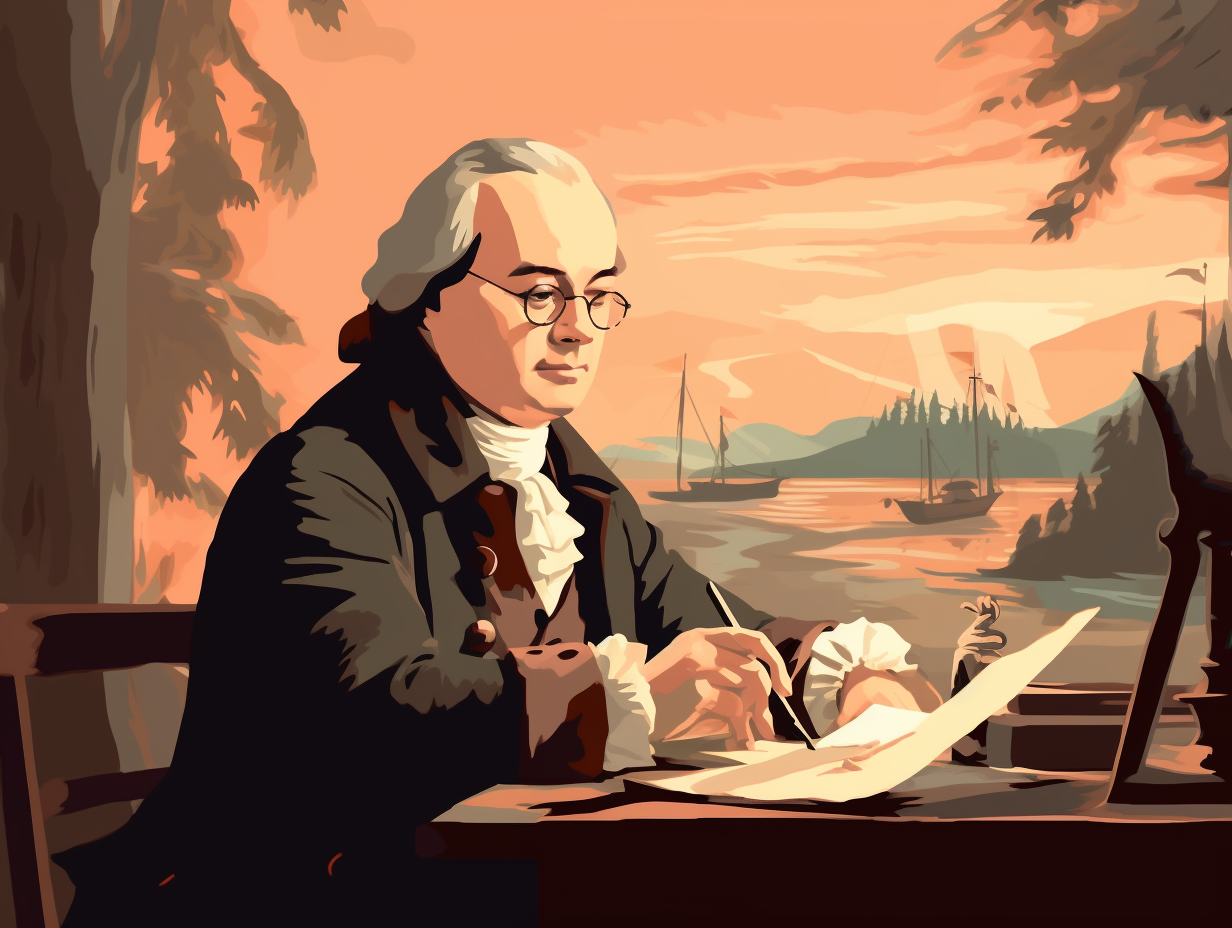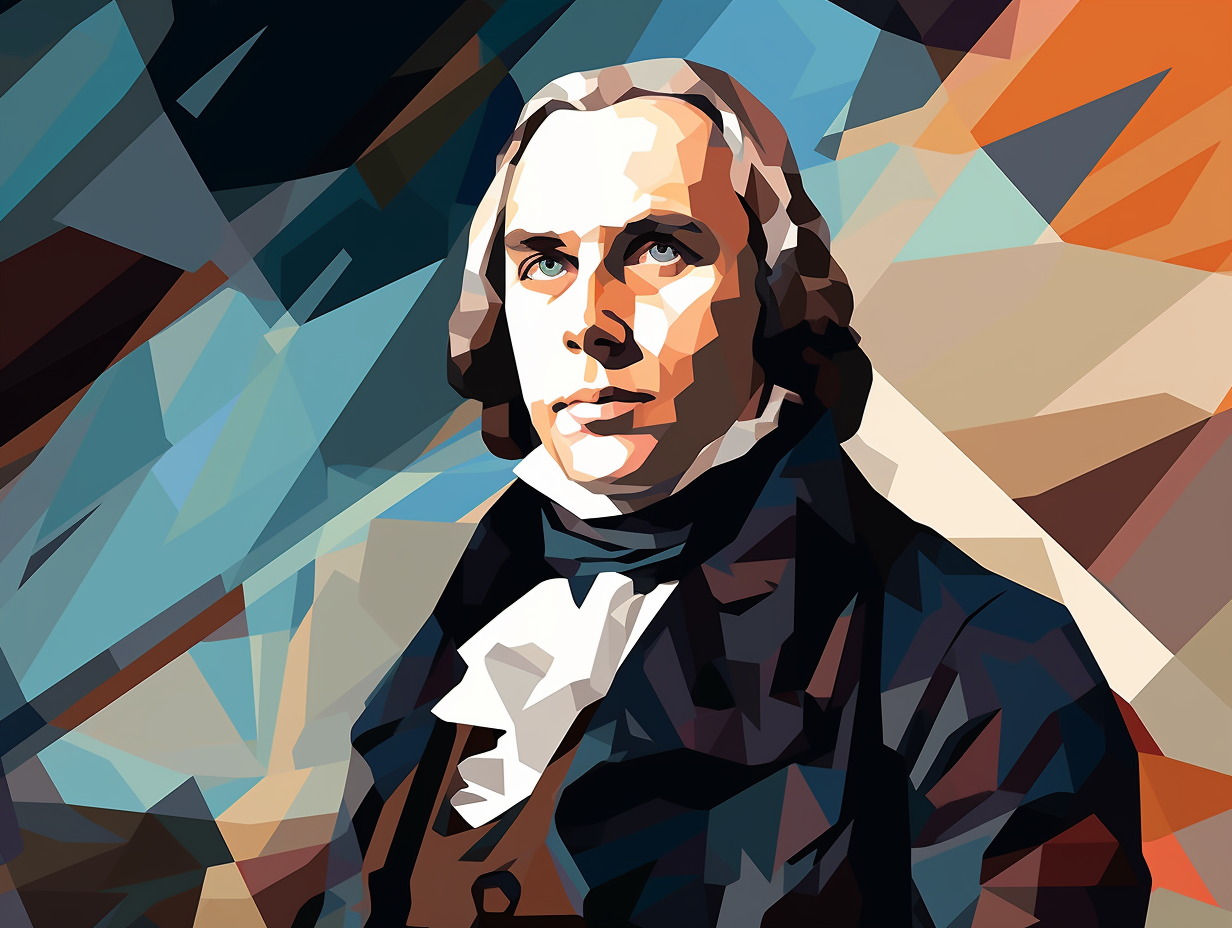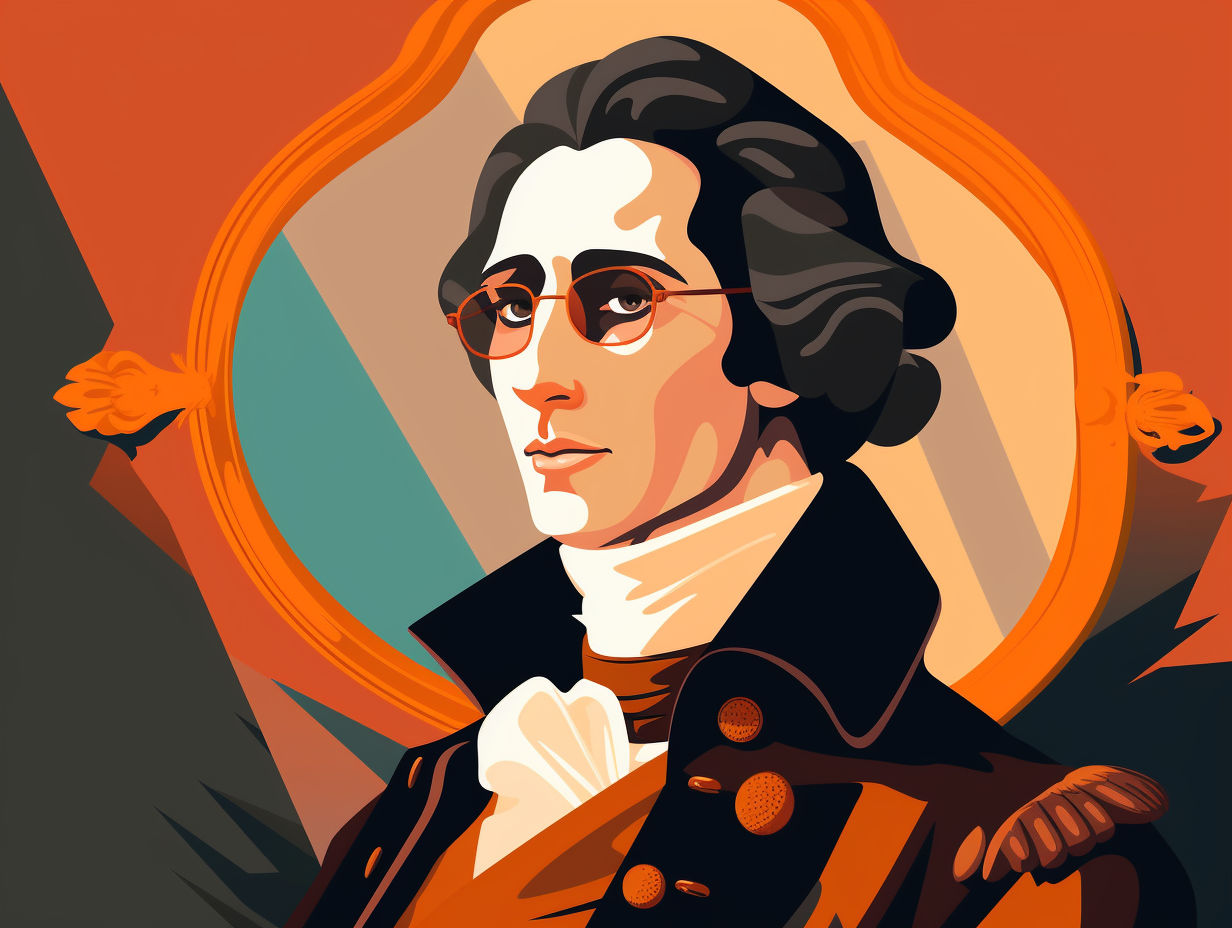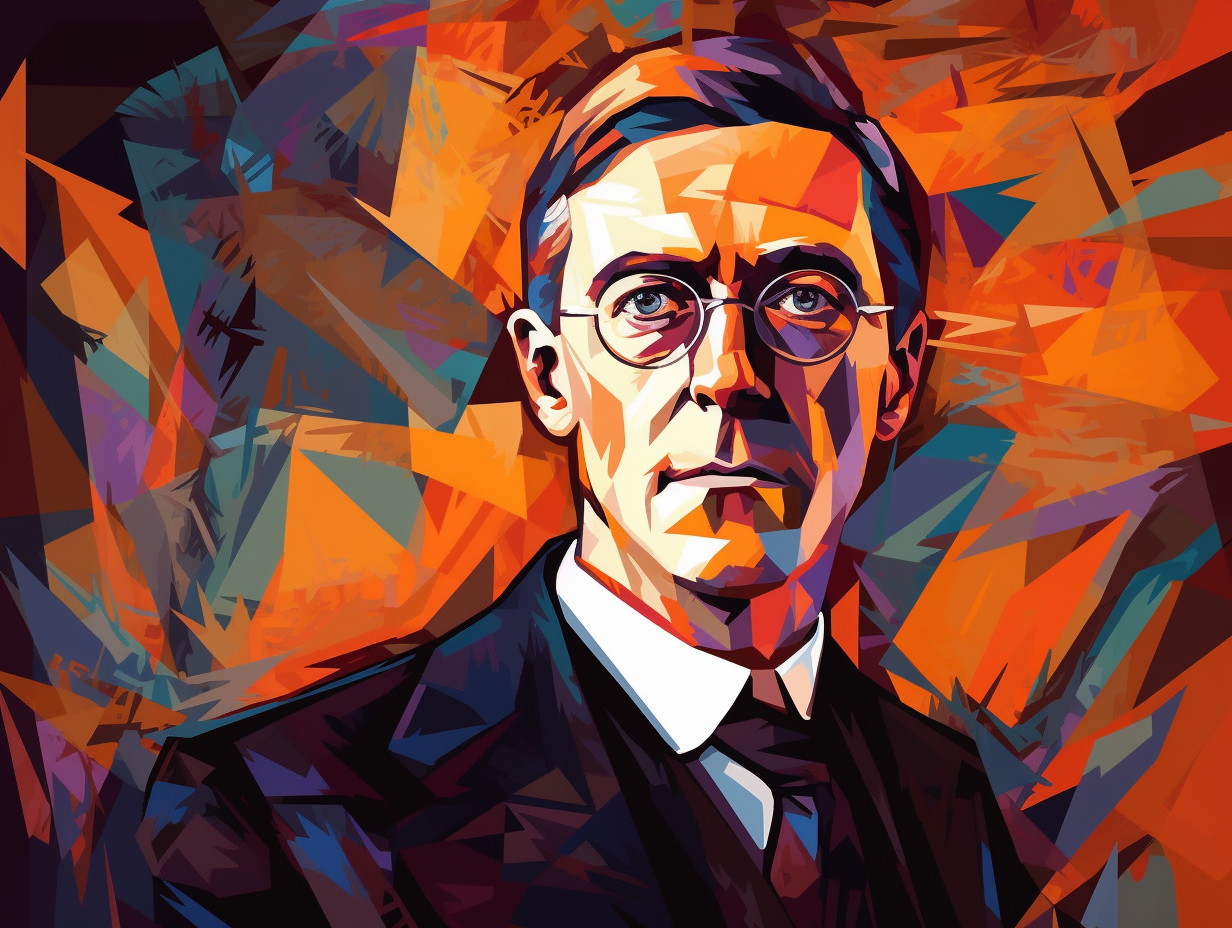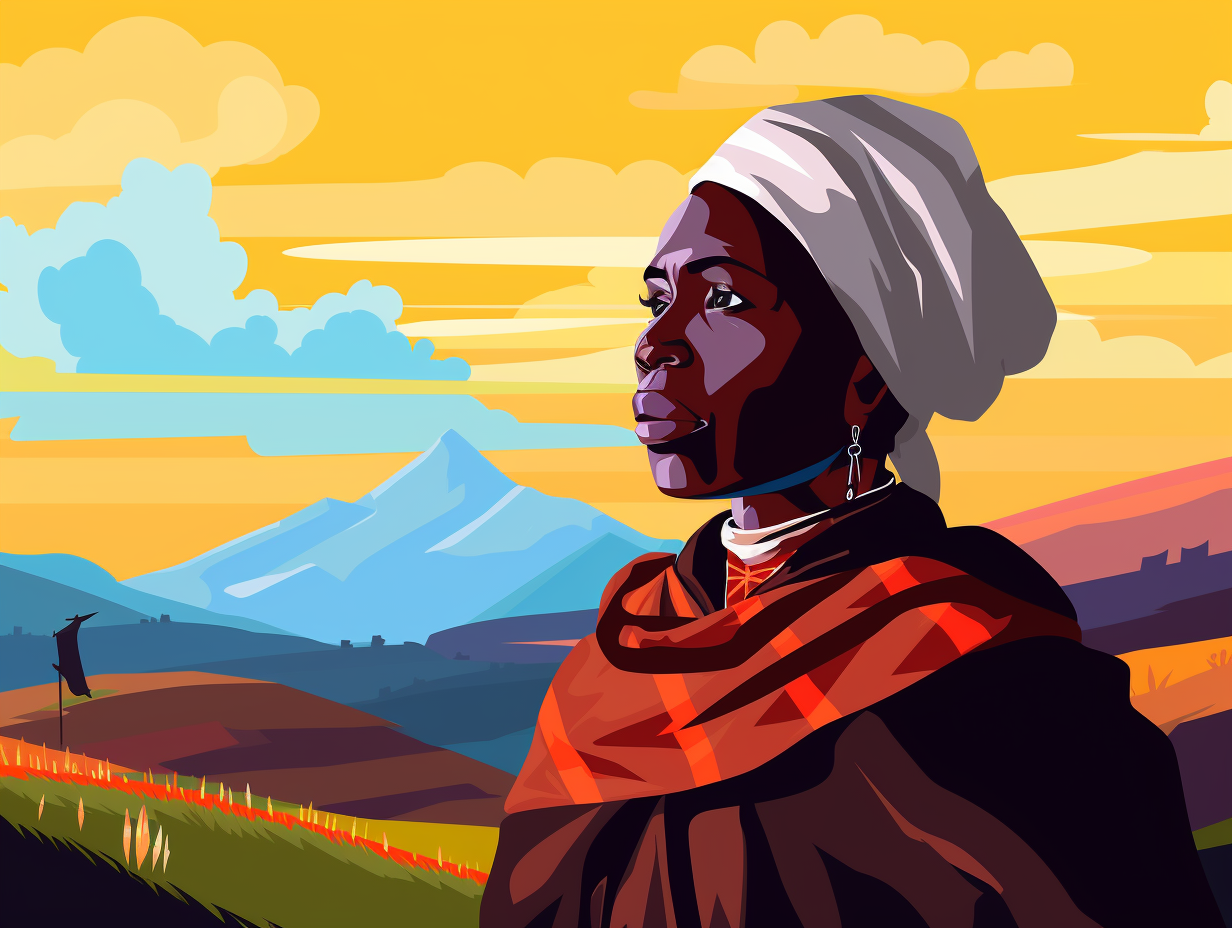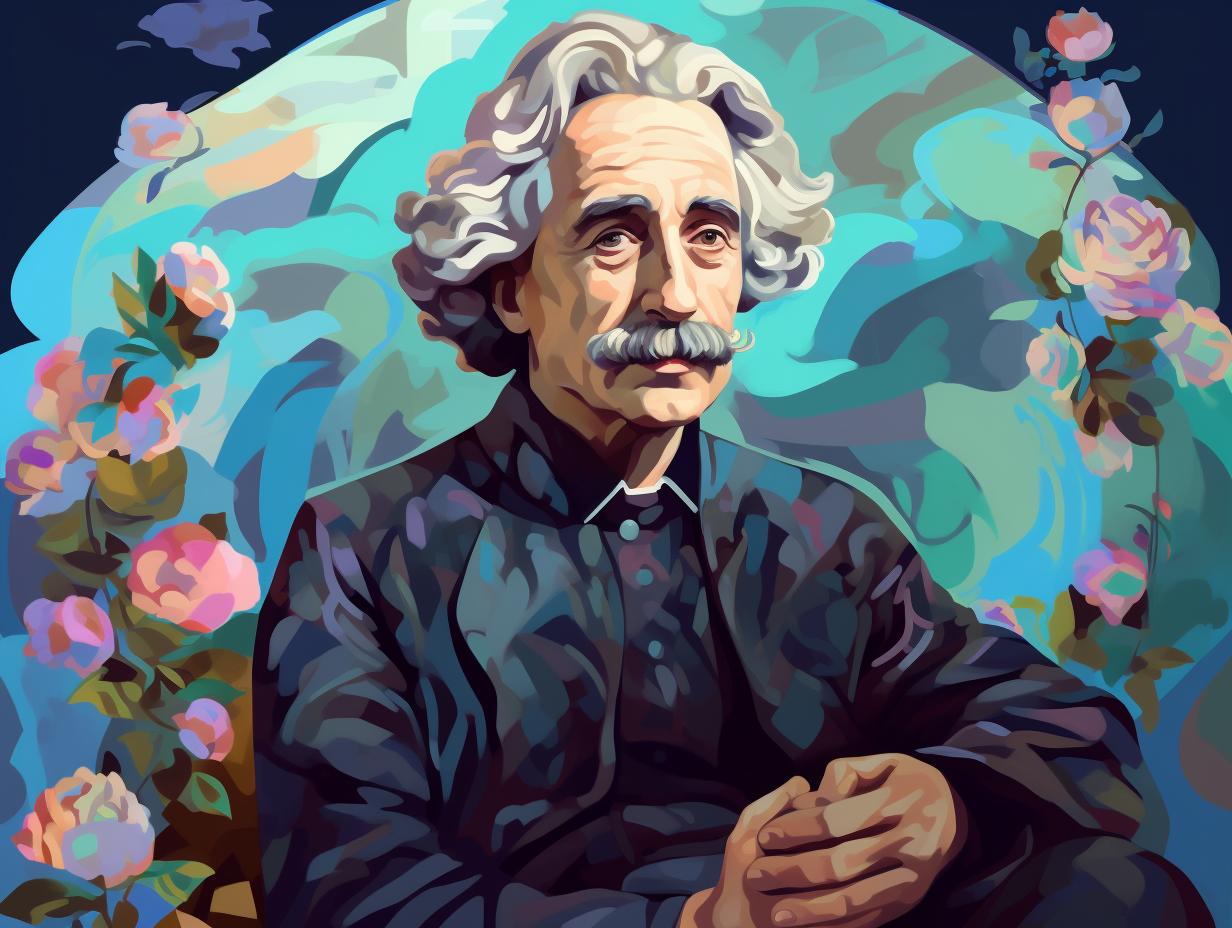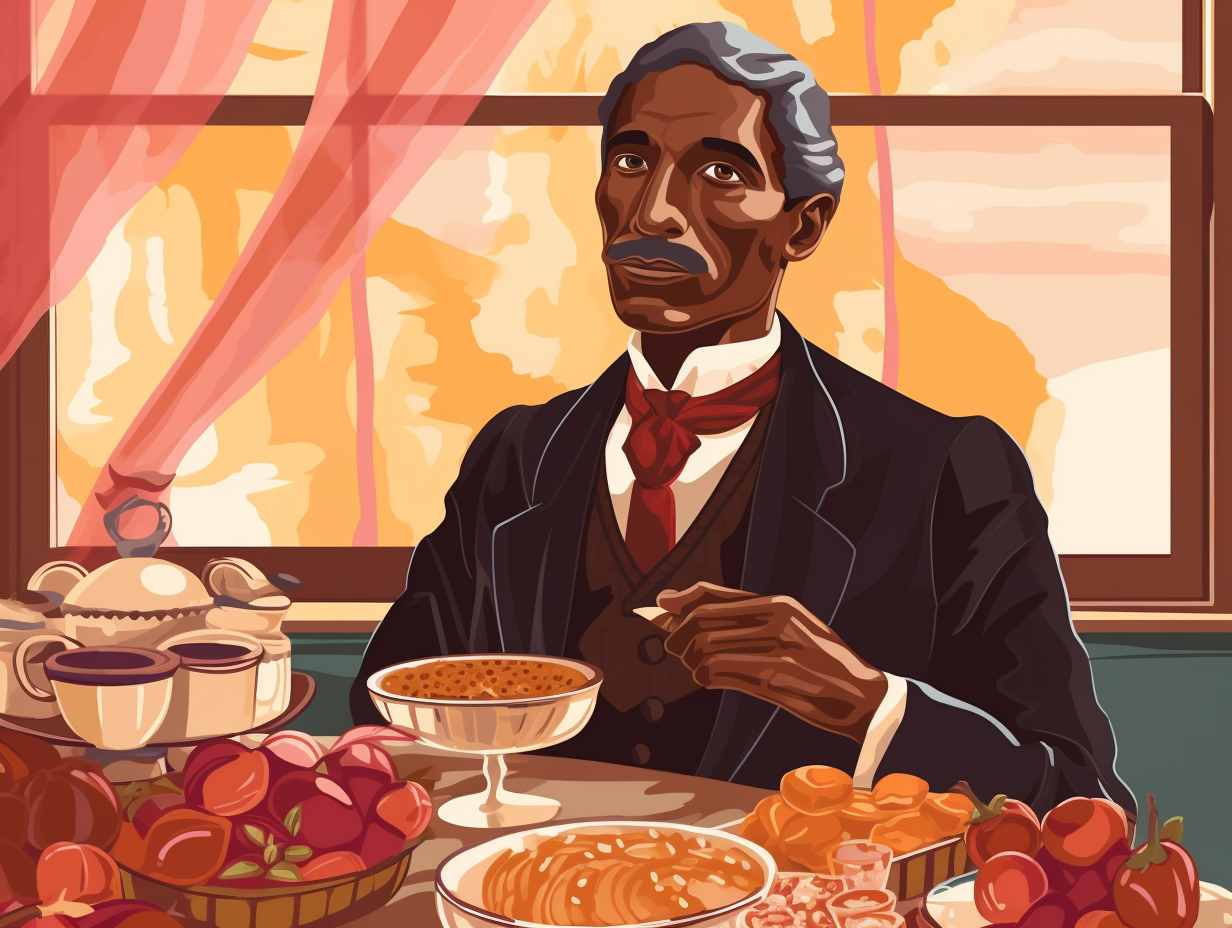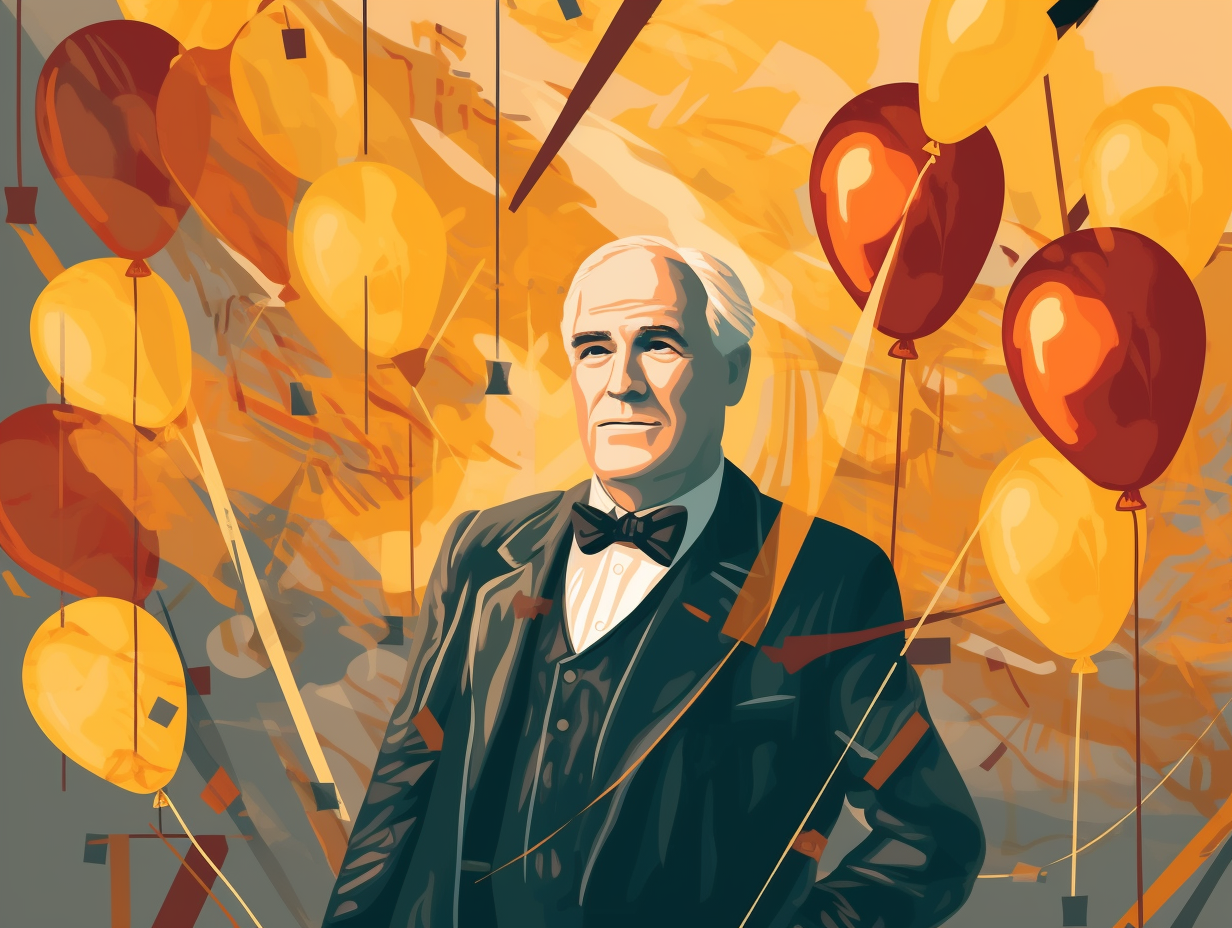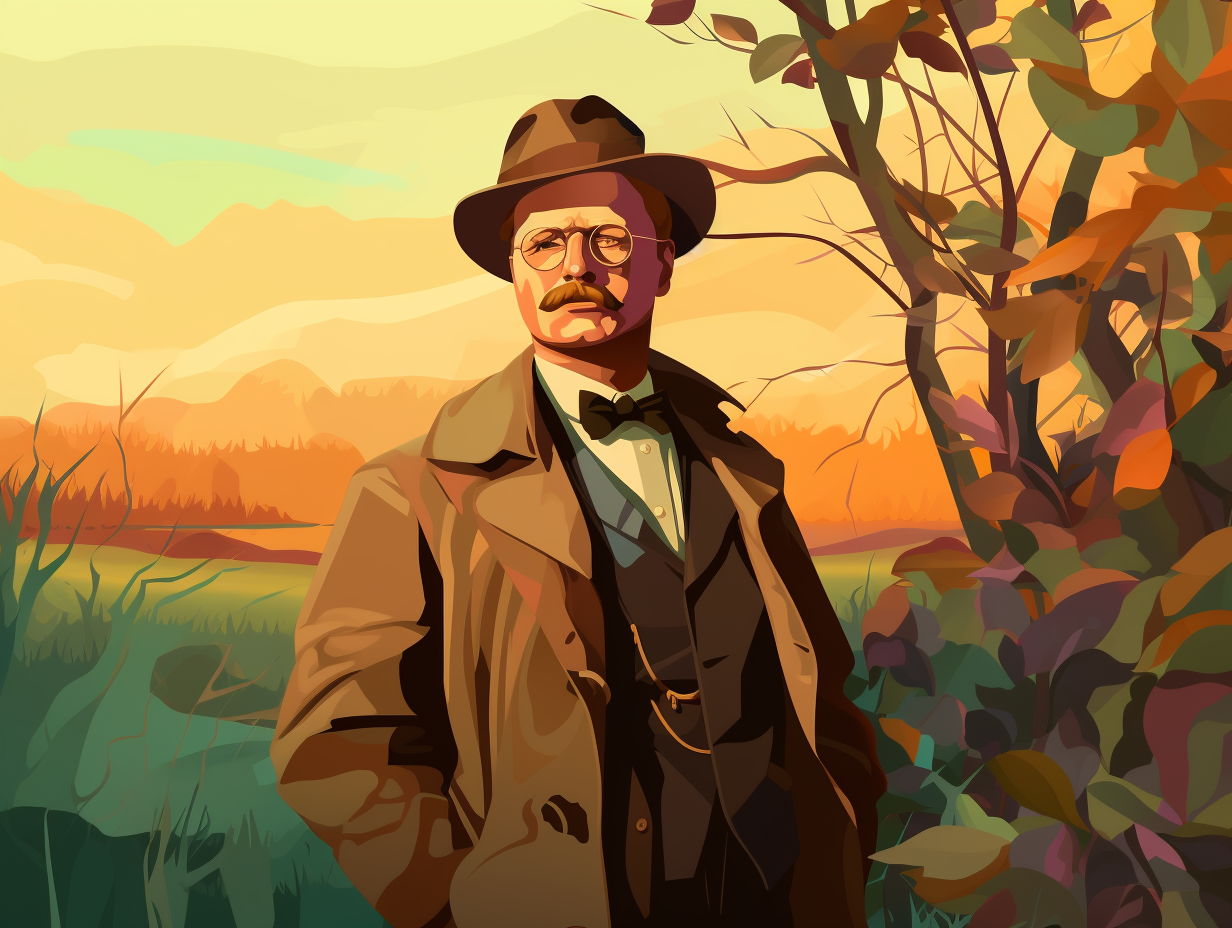Discover the Top 13 Entertaining Fun Facts About Homer: Unveiling the Life of the Legendary Greek Poet
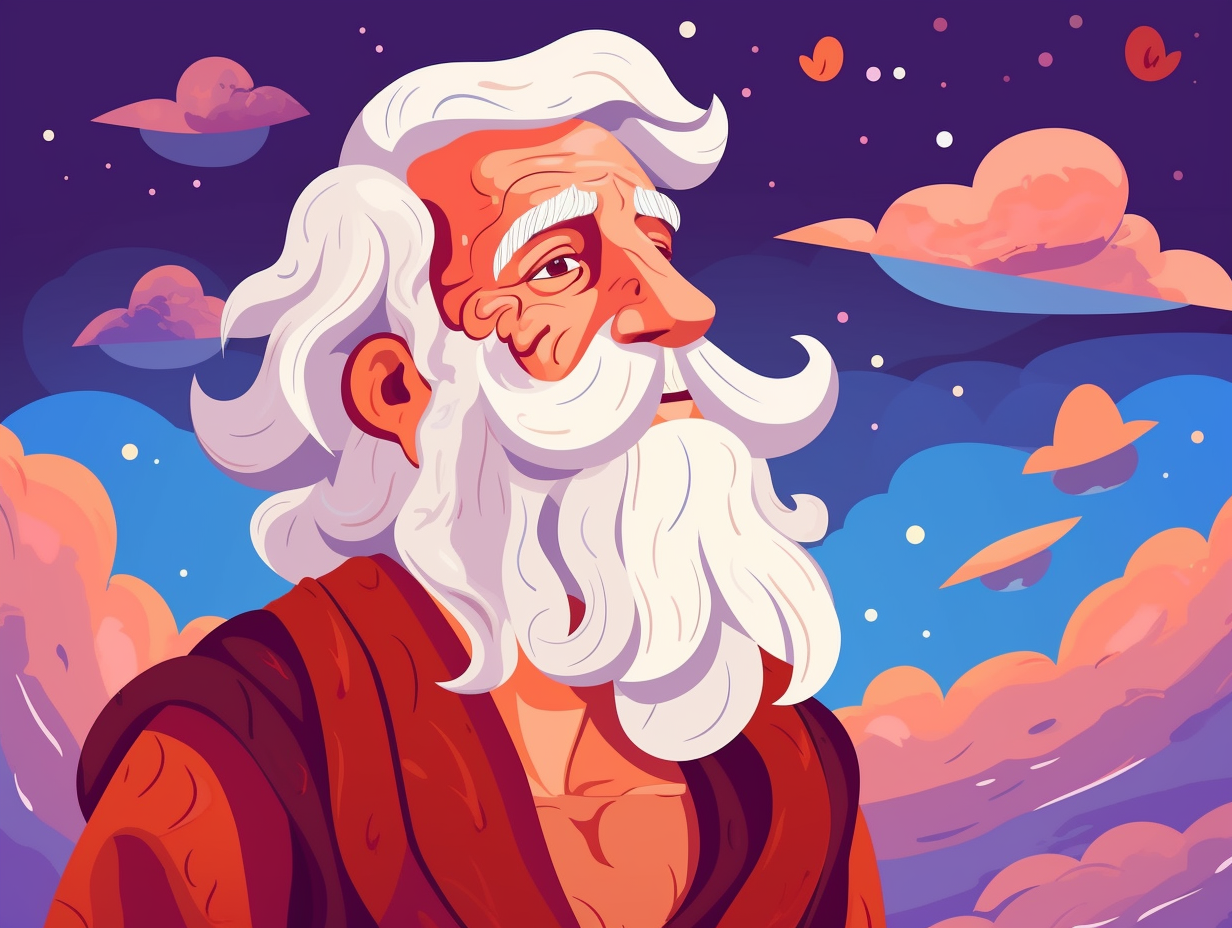
1. Blind Bard Rumors
Who needs 20/20 vision when you can weave epic tales that stand the test of time? It's rumored that the legendary poet, Homer, was actually blind as a bat: This ancient tidbit stems from Greek literature and mythology, where the blind bard Demodocus in the Odyssey is said to be a representation of Homer himself.
Source => britannica.com
2. Homer's Mysterious Birthplace
Who knew that ancient Greece had its own version of "Where's Waldo?": Homer's birthplace remains a mystery, with at least seven cities vying for the honor – including Chios Island, Rhodes Island, Smyrna, Colophon in Turkey near Ephesus, Salamis, Athens, and Argos on the Greek mainland, but Smyrna seems to be the most likely candidate.
Source => greeka.com
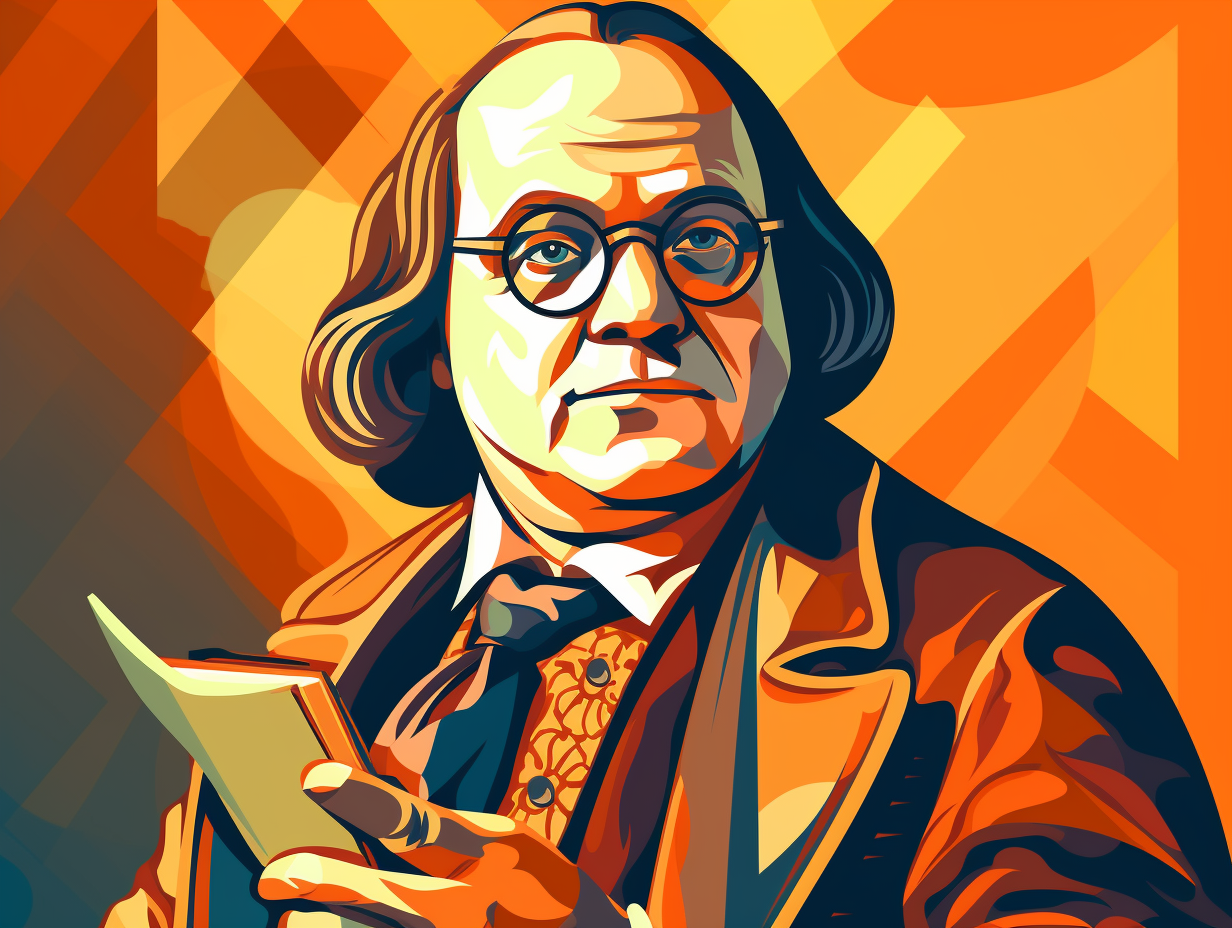
Did you know Benjamin Franklin's cheeky annual publication, Poor Richard's Almanack, entertained the masses for 25 years, but hardly made him a fortune? Discover more about this fascinating endeavor!
=> Fun Facts about Benjamin-Franklin
3. Divine Introduction in The Odyssey
Talk about a divine introduction: In Homer's epic poem The Odyssey, the narrative starts in medias res, with the first and last words of direct speech being spoken by gods, thus putting the "god" in "godfathers of storytelling"; the focus initially lies on Telemachus, not Odysseus; and Mr. O serves as our oh-so-charming, yet potentially unreliable tour guide through his own epic adventures!
Source => writework.com
4. Passed Down Poetic Telephone
Before GPS and Google Maps, there was... Homer: Quite possibly a centuries-long game of poetic telephone, The Iliad is thought to have been passed down through generations of singer-poets, and we don't even know if dear old Homer wrote the lines himself.
Source => ancient-literature.com

5. Homer: The Beyoncé of 8th Century BC
Imagine Homer as the Beyoncé of the 8th century BC: topping charts, authoring your favorite books, and stirring philosophical thoughts like it's nobody's business. Now, tone down his discography to just two evergreen hits: the Iliad and the Odyssey. Ethereal as it may sound, Homer's works hold such sway that these ancient Greek masterpieces became the pillars of literature and were even used as school textbooks. Pupils and scholars alike reveled in his wisdom, but to this day, we're left scratching our heads about the true identity and origin of this mysterious literary genius.
Source => en.wikipedia.org
6. Original Rap-Battle Champ
Homer, the original rap-battle champ spinning verses before it was cool: His epic poems, the Iliad and the Odyssey, were part of an oral tradition from the 8th century BCE, delivered by bards who recited these tales in the Homeric dialect to an illiterate audience, setting the standards for dactylic poetry and influencing other noble literary genres.
Source => britannica.com
7. Origins of the Name "Homer"
Whether it's going for a homer in baseball, or continuing the legacy of The Simpsons' donut-loving dad, our good friend Homer always seems to be ready to "come home" from all sorts of unexpected scenarios: In actuality, the name "Homer" traces back its origins to the Greek word "homeros" - meaning either "a hostage" or "blind," and is even associated with a keen species of pigeon trained to fly back to their home base.
Source => etymonline.com
8. Homeric Hymns Authorship Mystery
Who let the Greeks out? Homer, Homer, Homer-Homer: While we gladly credit the mysterious wordsmith named Homer with penning the epic sagas of The Iliad and The Odyssey, it turns out The Homeric Hymns got kicked out of his exclusive authorship club, as scholars wouldn't originally attribute them to his poetic genius.
Source => masculineepic.com
9. Homeric Epithets: Mnemonic Devices
Why did the ancient Greeks never lose their spot at the storytime podium? Because they knew how to pop an epithet like a seasoned hype man: Homer's epic poem, The Iliad, creatively used Homeric epithets as mnemonic devices, helping readers pause and remember the lines for recitation, thereby ensuring the poem's undying oral legacy.
Source => faena.com

10. Homer's Multilingual Influence
From taming Viking sea shanties to whispering sweet epic nothings into the ears of samurais, Homer's classics know no bounds: Translators like Peter Østbye, Tomislav Maretić, Doi Bansui, and Victor Xuereb have skillfully translated The Iliad and The Odyssey into languages such as Norwegian, Croatian, Japanese, Maltese, and Afrikaans, all while preserving the tone and essence of the original texts.
Source => translations.classicsmalta.org
11. Homer: The Pop Star of Chios
Who said ancient bards were one-trick ponies? Homer, the blind, singing sensation of Chios island, could probably give modern pop stars a run for their money with his impromptu, oral-showstoppers: He is the composer of the greatest hits of Greek literature, The Iliad and The Odyssey, which were created in the 8th century B.C. Not only did he perform his originals at festivals, but he also revolutionized the way these works were presented when Greeks learned to write - transitioning from oral tradition to the written word in dactylic hexameter!
Source => www2.latech.edu
12. 9-Hour Epic Reading Adventure
If you're looking for a literary escapade that won't keep you pinned to your couch like an ancient Greek Cyclops, Homer's Odyssey has you covered: This legendary epic, consisting of 24 books and 12,109 lines, is actually easier to read than The Iliad and, at an average reading speed of 250 words per minute, will take you around nine spellbinding hours to complete.
Source => ancient-literature.com
13. Binge-worthy Ancient Greek Morals
Before Netflix and chill, there was "Homer and morals": The Iliad and The Odyssey, written by Homer, served as the ancient Greek equivalent to a binge-worthy series that doubled as a moral compass. This literary foundation was studied and memorized by youngsters much like modern students tackling Sacred Scriptures, turning Homer's works into the ultimate combo of entertainment and education.
Source => classicalliberalarts.com
Related Fun Facts


